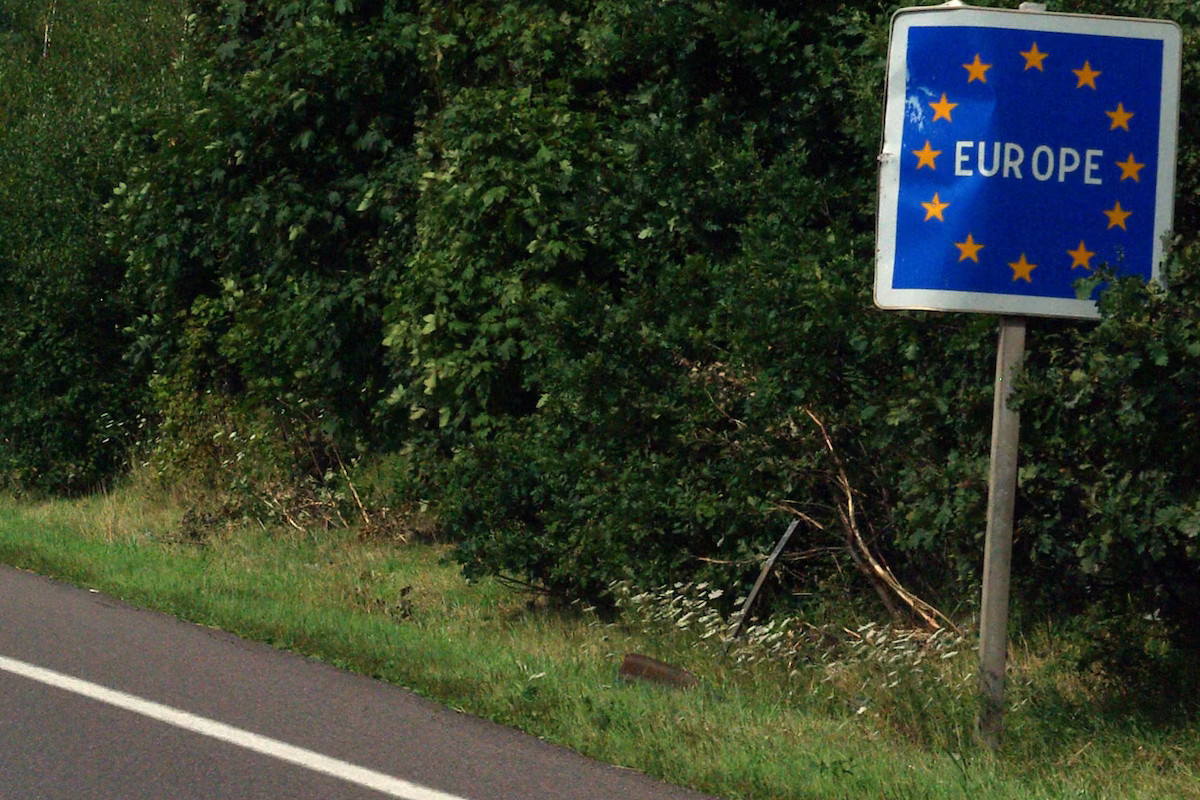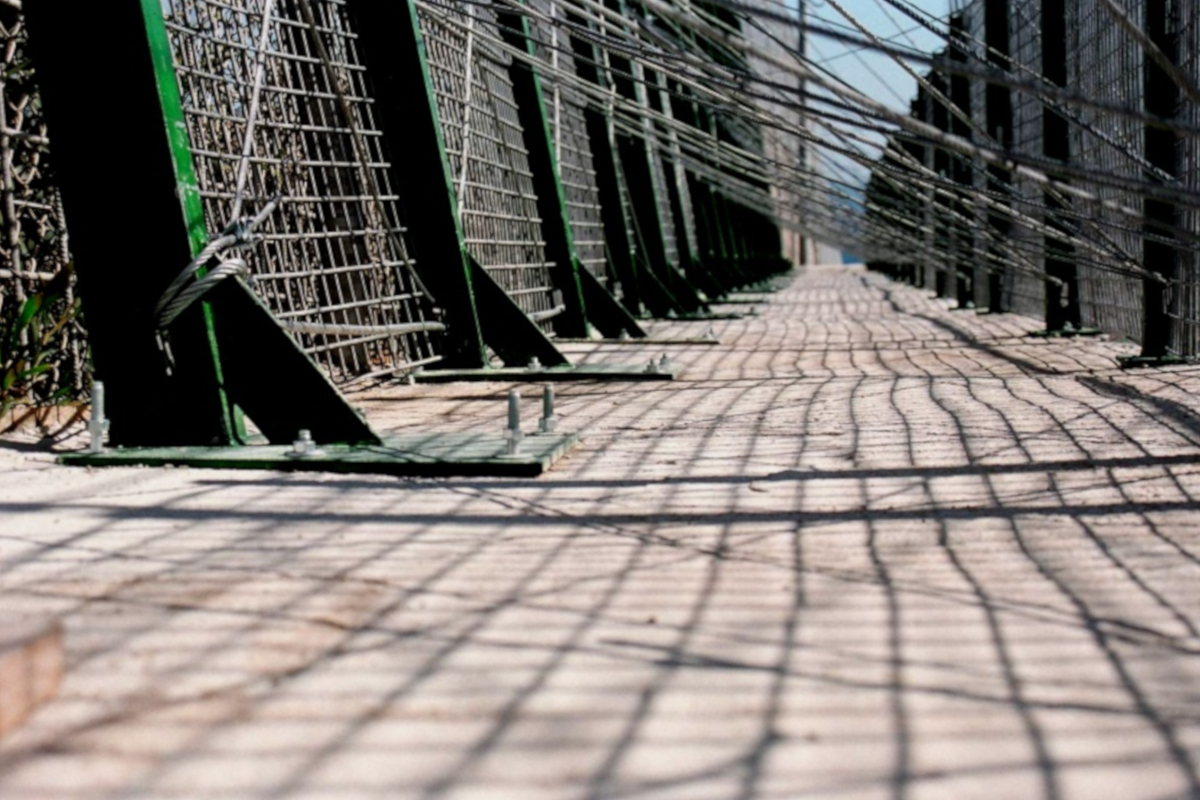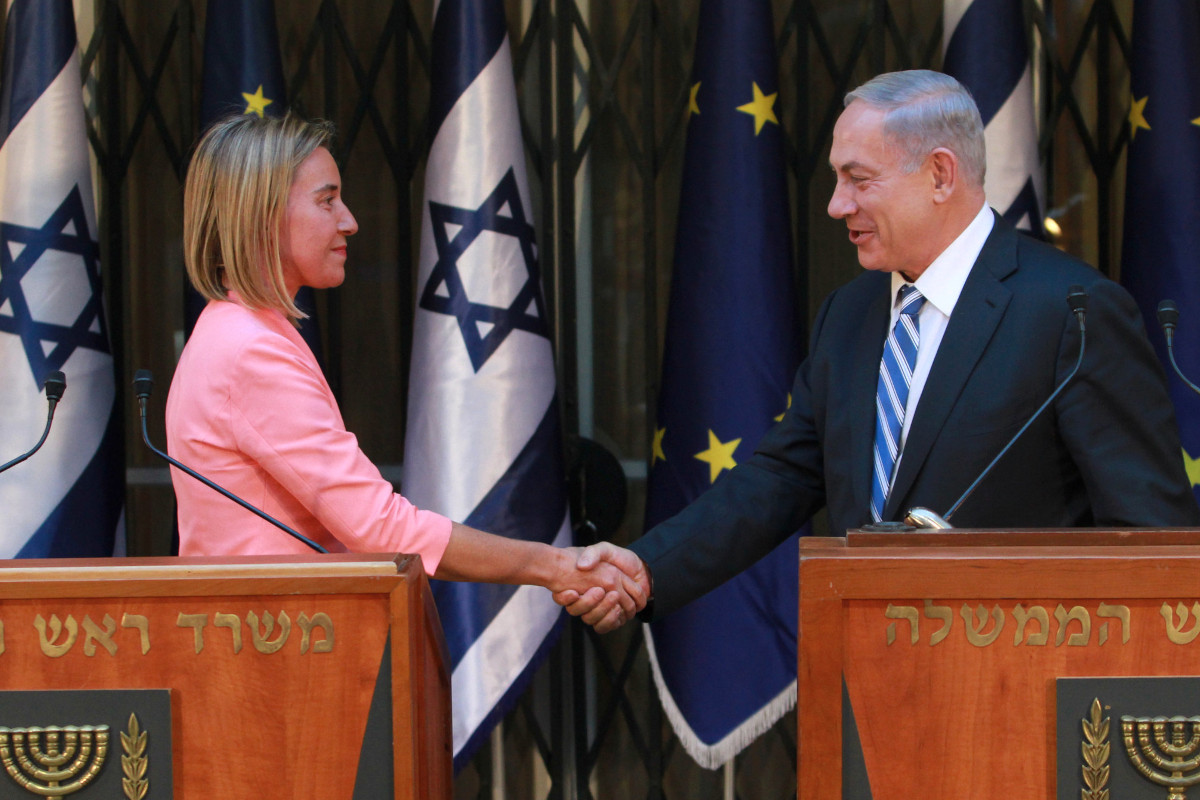Tarajal border deaths: 11th March for Dignity demands justice as new lawsuit opened
Topic
Country/Region
06 February 2024
Last Saturday, the 11th 'March for Dignity' took place in Ceuta, marking the killing of 14 people who died by drowning on 6 February 2014 after being pushed back by Spanish border guards, tear-gassed and fired upon with rubber bullets. A fresh lawsuit against Spain was recently filed at the UN by one of the survivors.
Support our work: become a Friend of Statewatch from as little as £1/€1 per month.

Image: XI Marcha Por La Dignidad
The manifesto of the 11th March for Dignity, reproduced below, says that the Tarajal deaths were "not an isolated case," but "part of a perverse, racist, colonial and white supremacist system that undervalues and murders black, Maghrebi, and migrant lives. This system does not properly investigate their deaths, nor does it act to prevent the reoccurrence of such deaths."
The manifesto names those who died that day: "Yves, Samba, Daouda, Armand, Luc, Roger Chimie, Larios, Youssouf, Ousmane, Keita, Jeannot, Oumarou, Blaise and another comrade whose name we do not know."
As well as Ceuta, demonstrations were held in Barcelona, Bilbao, Cazorla, Menorca and Seville.
Last week a new lawsuit was filed against the Spanish government by one of the survivors of the 2014 events, commonly known as the Tarajal massacre.
A man known as Ludovic N., who was a minor in February 2014, has lodged a complaint with the UN against Spain for violations of the Convention Against Torture - ill treatment, illegal expulsion, and a failure to investigate.
He was illegally pushed back to Moroccan territory and, in a subsequent court case in Spain, prevented from giving testimony.
"A decade has passed and still not a single person has been held accountable for the death and injury of so many," said Ludovic N., quoted in a press release published by the European Center for Constitutional and Human Rights, which is supporting the case. "The violence at the border on that day continued in court, where we were also not treated as humans," he continued.
A case summary produced by the ECCHR (pdf) says the complaint to the UN "is part of a series of legal challenges to address the impunity for systematic human rights violations inherent to pushbacks at the EU’s external borders, for which Spain’s policy at the borders of its African enclaves of Ceuta and Melilla provides a blueprint."
Manifesto of the 11th March for Dignity (also available in Arabic, French and Spanish)
Today, once again, we gather for the eleventh time on the Tarajal beach to denounce and demand justice for the death of 14 of our brothers and sisters on 6 February 2014: Yves, Samba, Daouda, Armand, Luc, Roger Chimie, Larios, Youssouf, Ousmane, Keita, Jeannot, Oumarou, Blaise and another comrade whose name we do not know.
Once again, we gather to remember and to continue to claim that no one deserves to die at the borders in search of a better life.
It has been 10 years since the Tarajal Tragedy. 10 years of pain, impunity and injustice, but also 10 years of fight, resistance and collective strength.
On this beach, 10 years ago, 14 people drowned while the Guardia Civil shot them with rubber bullets. The Guarda Civil were also equipped with riot gear as they violently prevented people from reaching the shore. 23 people were pushed back to the Moroccan authorities from the same beach and without access to any formal procedure. The authorities did not assist them. The authorities did not contact their families. Throughout the years and despite pressing charges, the authorities have not investigated these events sufficiently, responsibilities have not been clarified and the case has been closed, leaving the families without answers and without justice.
The Tarajal Tragedy is not an isolated case. It is part of a perverse, racist, colonial and white supremacist system that undervalues and murders black, Maghrebi, and migrant lives. This system does not properly investigate their deaths, nor does it act to prevent the reoccurrence of such deaths. 2023 ended up leaving behind more than 6,600 victims in the attempt to reach our beaches.
After all this time, this racist system and its migration policies continue to deny the right to truth, justice, reparation and prevention of future deaths. Even today, the families of the victims are still without knowing the truth, without reparation, without recognition and without being able to say goodbye to their loved ones with dignity. Borders remain spaces of lawlessness and death, and there are still no legal and safe ways to avoid tragedies like this one.
We denounce:
- Racism in all its forms, but today above all, the one that attacks migrant lives at borders through border institutions and policies.
- We denounce the neo-colonialism present in development cooperation policies at the service of border control and externalization.
- We denounce the instrumentalisation of migrants and the exploitation of their bodies.
- We denounce the "European Pact on Migration and Asylum", incompatible with human rights, which will cause tragedies such as the Tarajal and 24J to continue to be repeated.
- We denounce the administrative violence that hinders the access of many people to know their rights, to apply for asylum, exposes them to more violence such as labor exploitation, addictions, street situation, and makes the institutions one more border.
- We denounce the state's failure to take responsibility for the thousands of deaths of migrants at sea every year.
- We denounce the constant deaths and disappearances that occur on the beaches of Ceuta and Melilla.
For all these reasons, we demand:
- That the State assumes its responsibility for the deaths at Tarajal, compensates its victims and establishes mechanisms to safeguard lives at the borders.
- That the families of the Tarajal victims be allowed to visit the graves and decide on the fate of the bodies of their dear ones.
- Better management of public resources and budgets, investing more in social policies that offer a dignified reception for all migrants and refugees.
- The promotion of fair relations with the countries of the global south and an end to the plundering of their natural resources.
- To stop the use of violence at the borders.
- That the rescue of all lives at sea be guaranteed.
- That the right to free movement of all people be recognised.
For another year we gather here to shout that all lives matter, that migrant lives matter, that black lives matter. We will continue to fight for as many decades as it takes for black lives and migrant lives to be respected and dignified. We will continue to gather and raise our voices for all victims of the border. We will continue to demand justice and truth for them and their families.
Tarajal, We Do Not Forget! 10 years demanding truth, justice and reparation.
Our work is only possible with your support.
Become a Friend of Statewatch from as little as £1/€1 per month.
Further reading

Viewpoint: How to make fences and influence people: a simple guide
Are you an EU member state looking to divert attention from the human rights abuses you are committing at your border? By following this simple guide, you can ensure that not only will the European Commission, the “Guardian of the Treaties”, turn a blind eye to those abuses, but that you will receive a healthy cash injection at the same time!

Tarajal Manifesto 2023: justice for the dead
Today, the 10th March For Dignity will take place in Ceuta to commemorate and demand justice for the 14 people who died attempting to cross the border into Spain on 6 February 2014. The Tarajal Manifesto 2023 has been produced to mark the occasion.

The Melilla border deaths represent a new phase in the bloody story of Fortress Europe
On 24 June dozens of people died after attempting to cross the heavily-fortified border from Morocco into the Spanish enclave of Melilla. A report by the Nador branch of the Association Marocain des Droits Humains (AMDH), summarised and built upon here, examines the build-up to and immediate aftermath of the deadly incident. The report documents multiple human rights violations and also reveals a significant shift: from EU authorities undertaking pushbacks and leaving people to their fate in situations in which they may come to harm, to EU authorities undertaking pushbacks with the explicit knowledge that they would be beaten and treated in an inhumane and degrading manner by their non-EU ‘partners’.
Spotted an error? If you've spotted a problem with this page, just click once to let us know.

